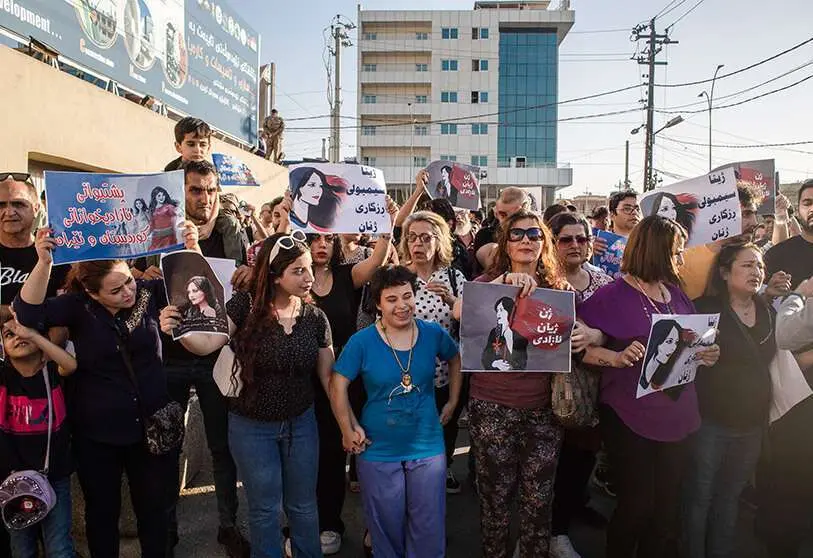The regime of the ayatollahs

The ayatollahs' regime in Iran is facing a huge challenge due to citizen protests that have been going on for more than a month, have been registered in numerous cities, oil industry workers have joined in and the latest episode has been the riot in Evin prison, north of Tehran, the country's largest penitentiary centre.
The repression of the protests that began with the death of a young woman, Mahsa Amini, arrested by the religious police for wearing the veil incorrectly, has claimed more than 200 lives, but far from intimidating the regime's opponents, we can see on social networks numerous videos of the demonstrations of the last few hours in different Iranian cities. The big question is whether this time the ayatollahs' regime can fall. At other times, Iran has experienced protests with harsh repression in blood and fire by the security forces attached to the power of the supreme leader, who at all times did not hesitate to tackle the crisis in the most forceful and exemplary way possible. Numerous experts say no to the possible fall of the theocratic regime that in 43 years has placed Iran in a situation of remarkable poverty and precariousness in various regions, in some cases without running water, electricity cuts, rationing of petrol, food and medicine. The regime tightly controls all the levers of political, judicial, legislative, military, police and economic power, but socially it has lost the fear it had imposed on thousands of citizens who now dare to call for the end of the ayatollahs, who are intent on expanding their radical Shiite Islamic revolution in the region with support for Hezbollah in Lebanon, Hamas in Gaza, the Houthis in Yemen and playing a disturbing role in Syria. In addition, boosting terrorist groups, threatening their arms spending, especially missiles, and the nuclear programme to achieve the atomic weapon.
The so-called veil revolution initiated by women in defence of their own rights has spread to many sectors of the population. Ethnic groups are rallying together against the regime and all are defending Iranian Kurdistan, where Mahsa Amini was born. The supreme leader himself, Ali Khamenei, has come out publicly to accuse outside enemies of what he called scattered riots. The European Union has announced sanctions. It is worth considering that, at a time of severe energy crisis for the West, regime change in Iran, one of the world's largest oil and gas reserves, without sanctions on the energy market would help lower prices. A great option for Europe in the face of the crisis caused by the Russian gas cut-off. Someone is providing the alternative internet server to the ayatollahs' control so that we can watch the videos of the protests. It is easy to imagine who is providing such technological support to the opponents. In China, Xi Jinping is now more concerned with consolidating his absolute power and, in Russia, Putin has enough of a nightmare with Ukraine and NATO.
The Islamist dictatorship is in its death throes. Reformist leader Mostafa Tajzadeh has been sentenced to eight years in prison for conspiring against state security, publishing lies and propaganda against the system. And the video of a policeman sexually abusing an Iranian protester is another drop in the bucket.

